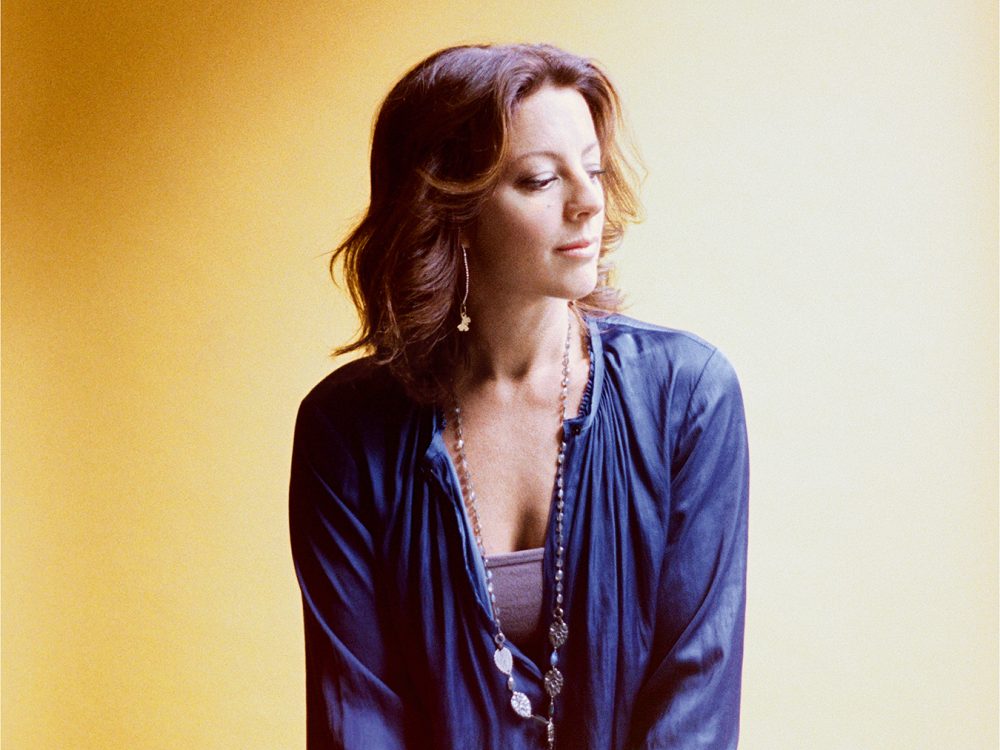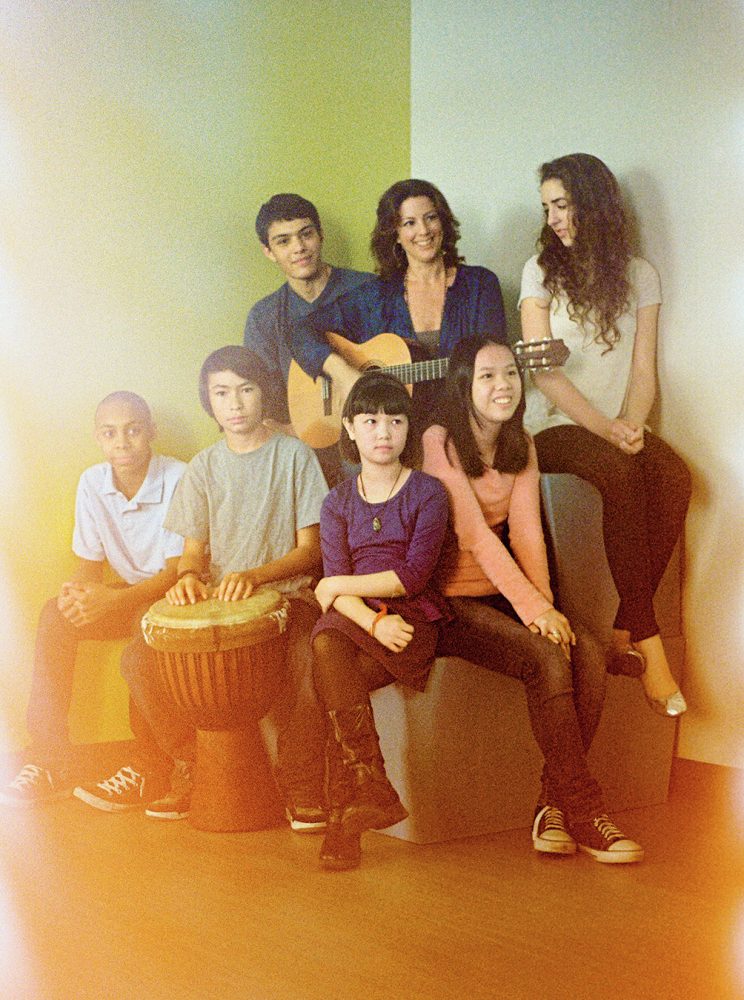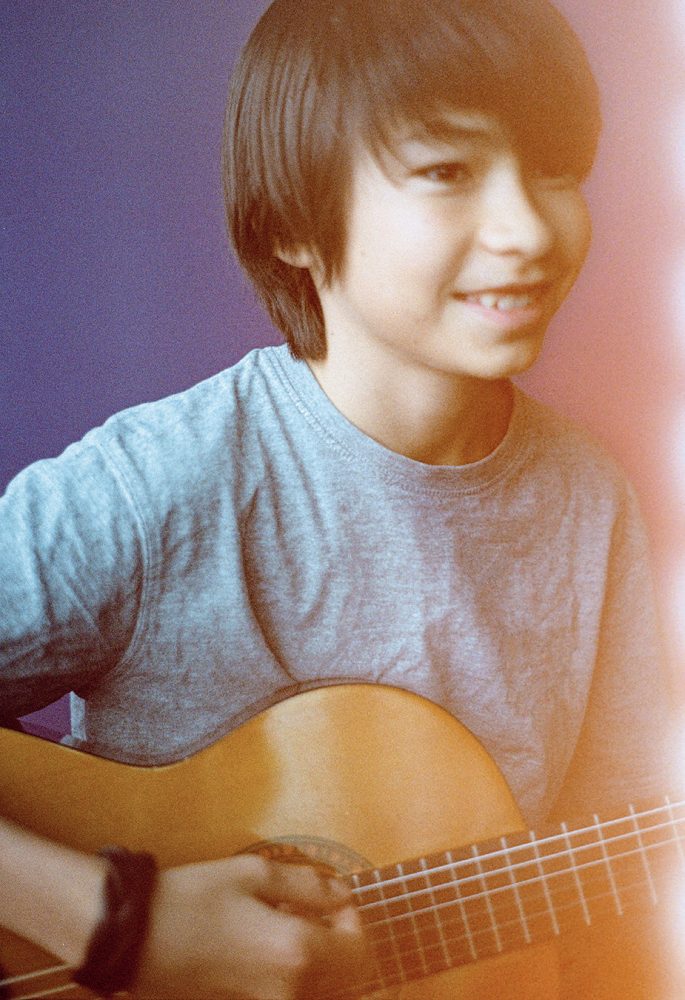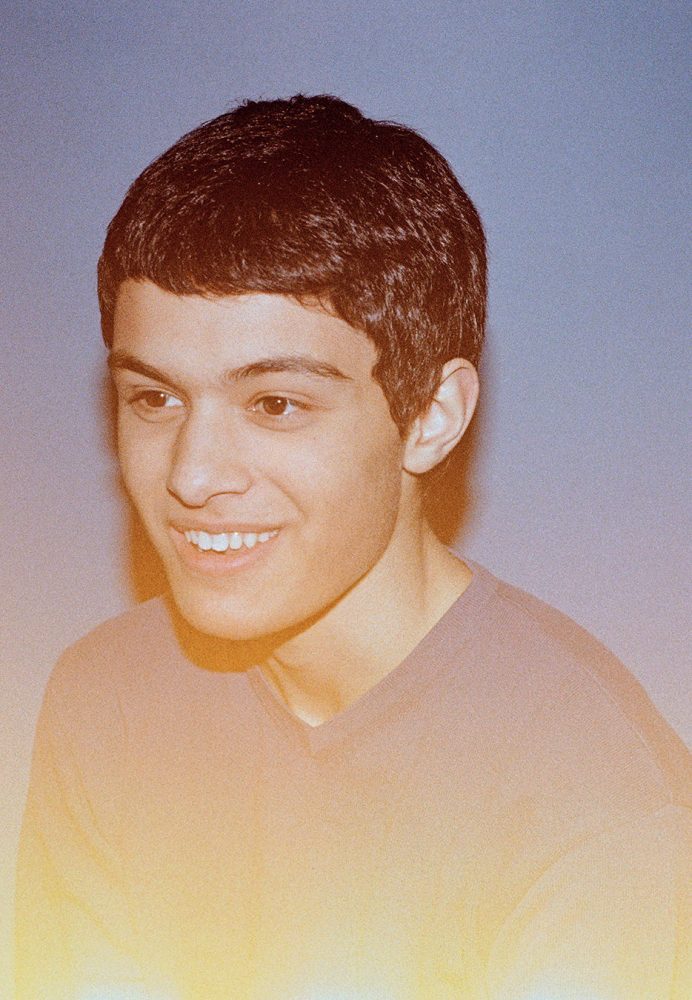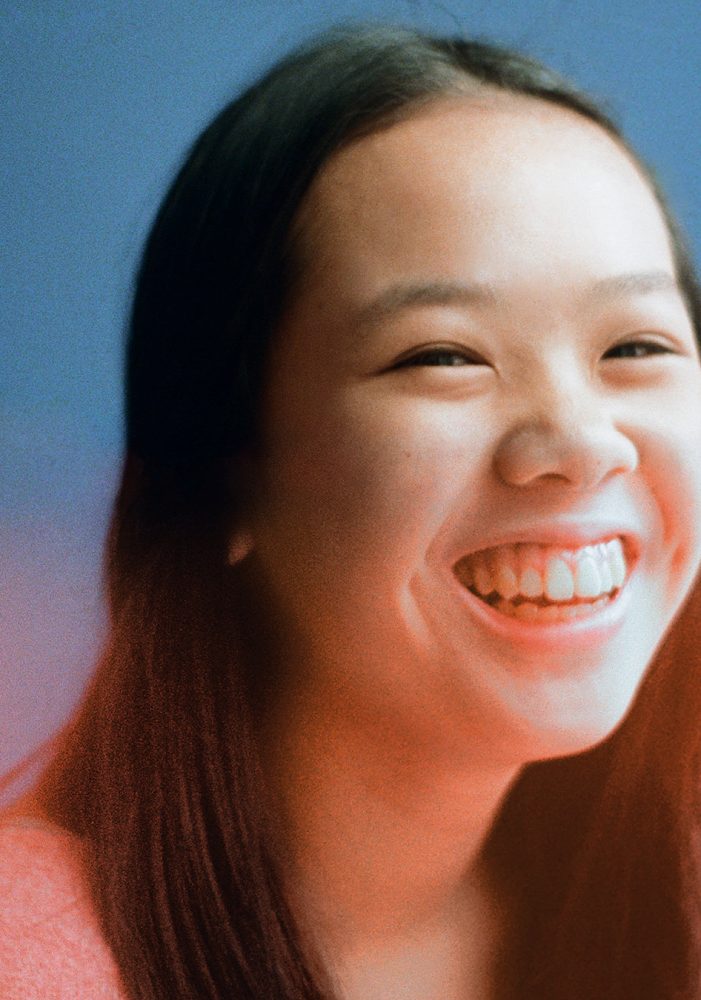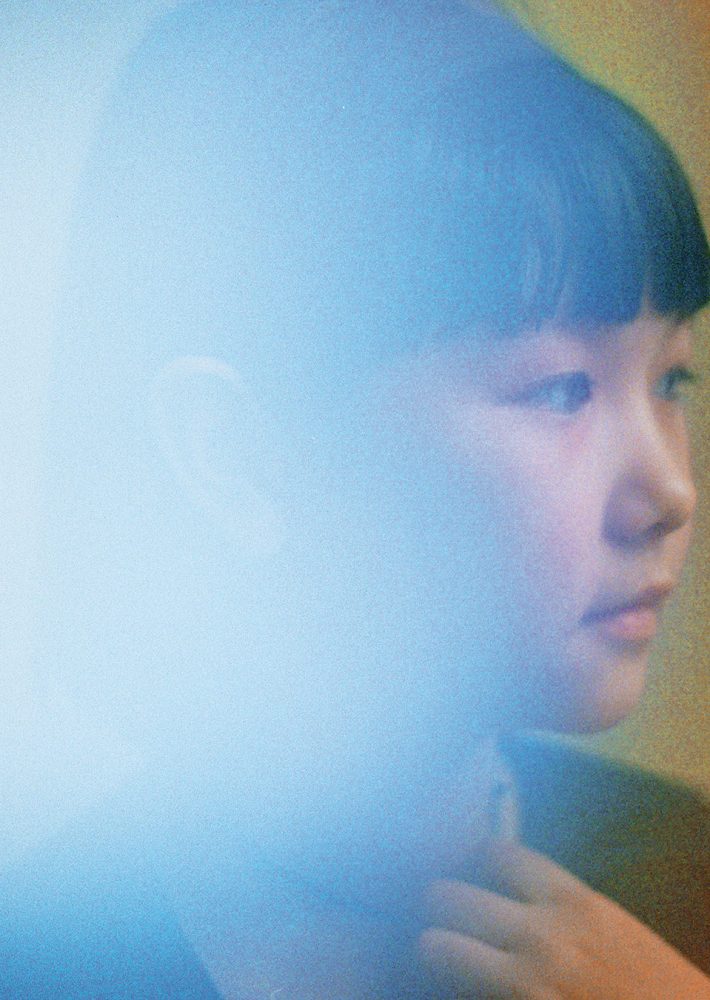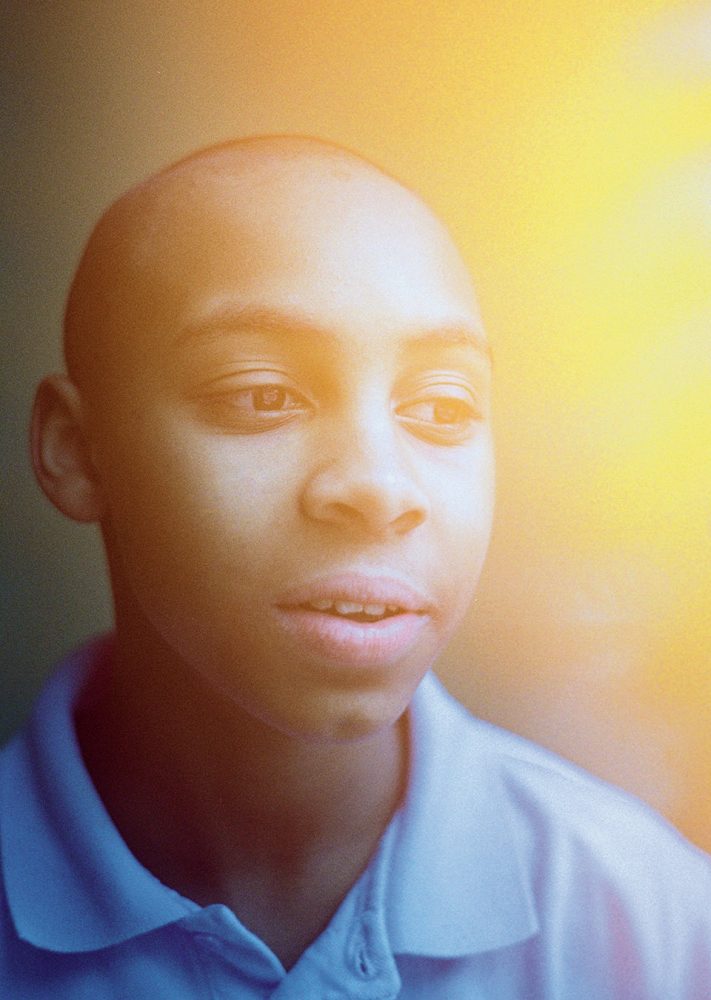The photographer is fiddling with a screen and two lights on stands that look a touch precarious, like rookie tightrope walkers. The subject of the photos waits patiently, looking out across the stage apron and into the empty auditorium, acoustic tiles hanging strategically all the way to the back. Then she starts to hum, and the sound—quiet, clear—graces the entire room. She wanders over to the baby grand piano, sits down, and plays along to her humming, and you realize, yes, this is Sarah McLachlan, recording artist with huge international sales numbers, founder and artistic mainstay of Lilith Fair; music informs her every moment.
This occasion, though, is the Sarah McLachlan School of Music, located just off Main Street at 7th Avenue in Vancouver, as it enters an exciting new phase in its 12th year of operation. “I wanted to start small, quietly,” Sarah says. “The first nine years have been years of growth, but very modest. I wanted it to be a part of myself, my values—a true community created here.” She pauses, and adds with a smile, “I was a pretty rebellious kid growing up. This school began because, after I found some success, was making money doing what I love, I wanted to give other kids a chance to explore music, too. I am grateful for what I have, and want to share it.”
The school is, by that standard, a raving success. By three each afternoon, the environment is buzzing with happy energy as students convene. The instructors, both core and guests, are extremely high level. Boris Favre is one of them. He teaches Senior Piano Ensemble and Music Theory. “Different instruments attract different kinds of people,” he says. “But here, the joy of making music is the jamming, singing, working together. Students are often quite reserved at first, keeping to themselves, but as the year goes on, they talk, start hanging out even when they don’t have classes. The students really want to be here.”
Rupinder Sidhu, who teaches Percussion, Intro to Sound Lab, and Beat Down, with a healthy dollop of hip hop, R&B, and sound mixing, adds that ”the students develop a kind of ‘inner mentorship’, so that more accomplished students help their beginner fellow along. And the kids here get the opportunity to study music, something they otherwise would not be able to do. It’s a privilege to work here. Not too many pop stars rock this way, setting up a school for underprivileged kids.”
“This school began because, after I found some success, I wanted to give other kids a chance to explore music, too. I am grateful for what I have, and want to share it.”
Sarah notes that the early years, working with Arts Umbrella, served to establish the school, its philosophy, and its policies. Those were times of working directly with Arts Umbrella, itself established in 1979 to provide arts outreach for children and youth in the community, to create a music outreach program for underserved youth in Vancouver. That eventually included the decision to offer students placement without tuition, on a basis of need. Schools in Vancouver’s inner city recognized the opportunity, and came on board early, recommending students who were most in need of this kind of extracurricular learning.
Sue Stevenson is the principal at Mount Pleasant Elementary School. “I began as an inner-city project teacher, and literacy and child self-esteem have always been big issues. That, and what these students do after school, and before their parents get home,” she says. “The Sarah School is a fantastic option, and we do see the progression of these children, not just in music performance, but their self-confidence levels. Our goal is to get the most at-risk kids to the school, and that is a team decision here.” Mount Pleasant’s demographic “is changing all the time, which is great. Much fewer crack houses, more families. There is a real sense of community, and the SOM is part of that.” Principal Stevenson sees, virtually every day, the tangible, positive effects the music school has.
Parents agree. Students range from Grade Four all the way to Grade Twelve. Sheryl, whose daughter Cerys has attended for nearly seven years, says, “When they get here, what happens is magic. It is an atmosphere of acceptance, and the kids are proud to be here.” Irene, mom to Cedar, says, “My son loved it from the beginning. The arts simply can’t be that high on the priority list for some schools, where kids are learning to eat properly, to brush their teeth, to learn a new language.” She pauses, thinking, and says, “I serve on the PAC at my son’s school, and got a notice about this place. I knew it could be a great opportunity that we could not have afforded to get for Cedar on our own. This school fosters conversation at home. It is wonderful point of commonality—a gift.”
The audition process is not strictly about music, other than evaluating what level a student should be placed at. Students are accepted to the program on the basis of their respective needs, enthusiasm, and motivation, and how well they are likely to become a contributing part of the school community. “The students are diverse, and we strive to do what works for every kid,” says McLachlan. “I am a team player, and we want our teachers and students to all be pushing in the same direction, to be like-minded about respect for each other, to be inclusive.”
“I love coming here for my lessons. To me, it feels like my second, big family. And I have learned you can let your heart speak, with music.”
The kids themselves articulate this extremely well. Cedar and his classmate Mohammed sit together to answer a few questions. Cedar says, “The school is kind of like a regular school program, all organized. But the teachers are pretty funny, and really great.” Mohammed adds, “I wasn’t sure about music, to be honest. But it is a great place to be, and now, especially with the jamming with other kids, it’s just great.” Cedar says that “before music, my marks were not so good. But now, since I have to remember to practise, and to study, things are much better.” A common ground is established.
Carmen has been at the school for six years, and is extremely eloquent about the school’s prowess at building a community within its walls. “I love coming here for my lessons. To me, it feels like my second, big family. And I have learned you can let your heart speak, with music.” Tessa, a new student, says, “I am kind of a loner at high school. I just don’t fit in there. But here, it is really nice. I sing in the vocal ensemble, and I’m in Music and Video Production. Next year I want to take both ensemble and guitar.” Tessa has been “writing songs since I was seven or eight, and I taught myself how to play guitar, mandolin, anything with strings like that.” She is intent on learning more about playing skills, but also about the music industry in general, such as sound engineering and video pre- and post-production. “It’s my Plan B, if I don’t make it as a singer/songwriter.” These are elements of the school’s curriculum, and all part of the overall plan. Tessa’s composition “Christmas Alone” (yes, it is available on YouTube) was made into a video at the school, with students doing all the work, with a little help from the teacher friends. She says, “Now we might even make a documentary, too.”
Sarah McLachlan and several students sit, waiting for another photo to be taken. As they do so, she strums her guitar, playing “Blackbird”. Someone asks what song it is, someone else answers. She then takes requests, and although “Stairway to Heaven” may seem a stretch, she does a few bars of that, before moving to another tune. There is no consensus, but plenty of laughter, as song titles get shouted out. It is a bustle of activity, of energy, and of genuine excitement. And in the midst of it all, the popular music star, herself in the final stages of writing and recording a new album, sits and enjoys it all, as if she had all the time in the world. In a sense, with this special music school, she has. They are not only building mysteries; they are building futures.
